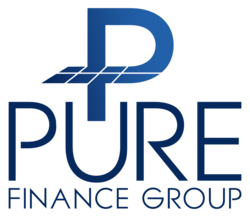
Could you get a better deal on your credit card processing fee? Learn more with this guide.
Very few businesses these days don’t accept credit card payments. This entails, of course, that all these businesses pay requisite processing fees. What might actually come as a surprise is the extreme variability of these fee rates from one company to another—and how great the potential is that, for one reason or another, any given company might be paying a rate that isn’t appropriate or, indeed, fair. Whether or not you’ve noticed (or made the connection) that high monthly rates are breaking the bank, it’s certainly worth your time following along with these steps to perform a quick self-audit that will determine if you are paying too much for credit card fees.
- Look over your billing history for any rate increases, and be vigilant about regularly checking.
- One of the hallmarks of any credit-related service initially offering extremely low rates is the tendency for—and frequency of—upticks in these rates over time. If your introductory pricing seemed too good to be true, it may well have been, at least in the long term. This is obviously a bit of a bait and switch tactic, predatorily capitalizing on inherently “vulnerable” (and often underinformed) first-time and/or low-capital business owners.
- Note that there are many valid, justified reasons for increases, though. For example, most major credit card companies renegotiate or adjust their network and interchange rates twice yearly with the “middleman” that is your processing company; this inevitably results in periodic rate increases for customer, but reputable processors take care to minimize this burden. Sometimes, however, these negotiations are used as a flimsy pretense for unreasonable inflation of processing rates—i.e., your company being taken advantage of.
- Be aware that all major credit cards require PCI compliance.
- Non-compliance (-regardless of its often potentially being borne of ignorance) comes with its own monthly fee, which may be increasing your overall rate.
- Those these fees are justifiable—i.e., designed to offset the inherent potential risk factor of non-compliant transactions—but an upstanding processing company should be actively working to keep you informed about and, ultimately, compliant with PCI standards to spare you these fees—rather than profiting from them.
- Don’t hesitate to talk with a representative from your processing company to look for potential ways to lower your costs.
- The vast majority of what you pay in credit processing fees is passed directly along to the major credit companies. Industry-wide, there are cumulative hundreds of interchange rates. Though these are all non-negotiable, it may well be the case that some new development with your business—or even some detail or bit of info it had never previously occurred to mention—will allow your rep to discover that you qualify for a lower rate. Which is to say: you may indeed be paying too much for credit card processing simply because you haven’t recently “chatted” with your processor.
In addition, many processing companies offer free auditing service that will ultimately result in either of two ideal outcomes regarding fee evaluation:
- A sense of assurance from the confirmation (and a thorough accompanying explanation) that your rates are appropriate based on the nature and status of your business, or alternately—
- For one reason or another, you’ve been paying too much for credit processing—but you don’t have to be. Because, remember…
Pure Finance Group Is Here to Help!
Thank you for your interest in Pure Finance Group. We’re so excited you’re here. For more information on how our lending services can help you with your home financing needs, give us a call (410-401-4957) or fill out the form on our contact page today. If you have a question about any lending services we provide including home improvement loans, we are here to help answer all your questions. Just give us a call (410-401-4957) or contact us today. To keep up-to-date with the latest financing tips and solutions, keep in touch with us on Facebook and LinkedIn!
